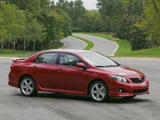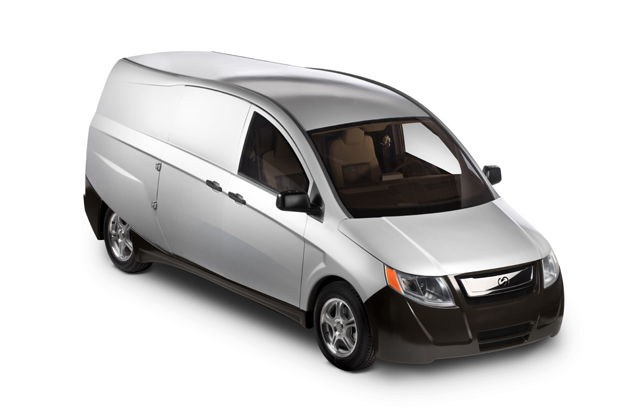If your car is accelerating out of control, whether it’s a Toyota, a BMW, or any car,
- Put your foot on the brake – and press the brake with a steady pressure.
- Put the car in Neutral. (Just like manual tranmissions, automatic transmissions have a “Neutral” setting. You shouldn’t drive if you don’t know this.)
- Turn on the Hazard lights.
- Pull over.
- and Above All,Don’t Panic.
Putting the car in “Neutral” disengages the transmission from the accelerator, assuming there isn’t a transmission problem. Don’t turn off the engine: you will lose the ability to brake and steer. Don’t put the car in “Park.” It will slam to a halt, throw you and your passengers against the steering wheel or the windshield, damage the engine, and you will be rear-ended by the jackass tailgating you.
It also works regardless of what is causing the problem – and it might not be because of sticky accelerators. Writing in the LA Times, Jan 30, Ralph Vartabedian and Ken Benslinger, note that:
The pedal maker denies that its products are at fault. Some independent safety experts also are skeptical of Toyota’s explations. ‘We know this recall is a red herring,’ one says.
Federal vehicle safety records reviewed by The /LA/ Times also cast doubt on Toyota’s claims that sticky gas pedals were a significant factor in the growing reports of runaway vehicles. Of more than 2,000 motorist complaints of sudden acceleration in Toyota and Lexus vehicles over the last decade, just 5% blamed a sticking gas pedal, the analysis found.
“In the event that a driver experiences an accelerator pedal that sticks in a partial open throttle position or returns slowly to idle position, the vehicle can be controlled with firm and steady application of the brakes. The brakes should not be pumped repeatedly because it could deplete vacuum assist, requiring stronger brake pedal pressure. The vehicle should be driven to the nearest safe location, the engine shut off and contact a Toyota dealer for assistance.”
“Customers who experience an accelerator pedal that is hard to depress, slow to return or is unsmooth during operation should drive the vehicle to a safe location, shut off the engine and contact a Toyota dealer for assistance.”
You might also want to buy a bumper stickers that say “If you can read this you’re too close”
or “Keep your distance – I’m driving a Toyota.”
We at Popular Logistics are disappointed in Toyota’s handling of this issue. The community at the Marlboro CollegeMBA in Managing for Sustainability consistently ask Is this “Sustainable?” or “Is this Less Unsustainable?” Clearly the higher mileage vehicles Toyota builds are “Less Unsustainable” than lower mileage vehicles from Toyota and their competitors. But just as clearly, they are NotSustainable. Tim Ahern, spokesman for the Trust for Public Land, was quoted in the NY Times, Thurs, Feb 4, 2010, saying “I was driving, but I was also doing something good for the environment.” We disagree. We would say that by driving a Prius, Mr. Ahern is doing something Less Bad.
There are no sustainable automobiles today! The closest things are Bright Automotive’sIdea (designed with consulting by the Rocky Mountain Institute) and electric vehicles charged by wind, solar, or geothermal, followed by the Toyota Prius and the Honda Insight. Hybrids SUV’s may be better than SUV’s, but they’re not as good as small or mid-sized cars, especially small or mid-sized hybrids.
Back to Toyota, they were known for quality control, and quality. What they will be known for tomorrow is anyone’s guess, and will be based on their response to this problem. A comment by Roy LaFaver, January 29, 2010, on the Toyota Pressroom site sums it up:
“Bought a new Tacoma in 2003. Poor fuel mileage, substandard shocks, substandard materials under the dash, substandard seating. Recognized over the next few months that this was a shoddy vehicle. Dumped it and bought a Ford. Happy ever since. I’m not surprised to see what is happening now. Toyota has become the 1970 GM Corporation here in 2010. Sell substandard vehicles, repair the ones that come back to the dealerships for less than it would have cost to use good grade of parts, and make more profit as a result.”
Toyota is quick to remind customers and potential customers, that:
Highlander hybrids and Camry hybrids are not involved … and will remain for sale.
Camry, RAV4, Corolla and Highlander vehicles with VINs that begin with “J” are not involved.
The accelerator pedal recall and suspension of sales is confined to:
- Certain 2009-2010 RAV4
- Certain 2009-2010 Corolla
- 2009-2010 Matrix
- 2005-2010 Avalon
- Certain 2007-2010 Camry
- Certain 2010 Highlander
- 2008-2010 Sequoia
- 2007-2010 Tundra
If you thought it couldn’t get worse for Toyota, Micheline Maynard writing in the NY Times, covered news that the Prius is in trouble too. “Prius Adds to Toyota’s Woes as Stock Drops in Tokyo”, February 3, 2010
The hybrid-electric Prius has long been Toyota’s “green car,” the symbol of the automaker’s engineering prowess and its big bet on the kind of car consumers will want to buy for decades to come.
With Recall Expanding, Toyota Gives an Apology, By NICK BUNKLEY and MICHELINE MAYNARD, January 29, 2010, DETROIT — The president of Toyota issued his first apology Friday as his troubled automaker expanded its recall to include Europe and it rushed to complete its strategy to modify or replace millions of accelerator pedals, http://www.nytimes.com/2010/01/30/business/30toyota.html
Peter Cohan, writing in the Daily Finance, 02/01/10, points out that they have two problems – a technical problem and a reputation problem. Fixing the technical problem is easy. Fixing their reputation … will be difficult.
Toyota Motor Corp. (TM) has announced a fix for its rogue accelerator pedals, which will come as a relief to drivers of the automaker’s vehicles who been terrified that a stuck pedal might send them whizzing out of control. While it’s too early to give Toyota a final grade on its handling of the accelerator pedal problem, I’d give the company a C for how it has dealt with it so far.
Toyota’s announcement this morning marks the beginning of a pair of long processes: fixing millions of vehicles, and restoring its reputation. The defects that will be repaired under the recalls affect the accelerator pedals in more than 8 million vehicles and come in two forms, according to The New York Times. In 4.1 million vehicles, worn pedals can become “hard to depress, slow to spring back or stuck partially depressed.” In 5.4 million vehicles, a design flaw “traps the pedal beneath the floor mat.” Several models have both problems and are covered by both recalls.
Cohan gave Toyota a “C” for their work thus far. We agree. As noted above, Toyota was known for quality control and quality. What they will be known for in the future is anyone’s guess.

